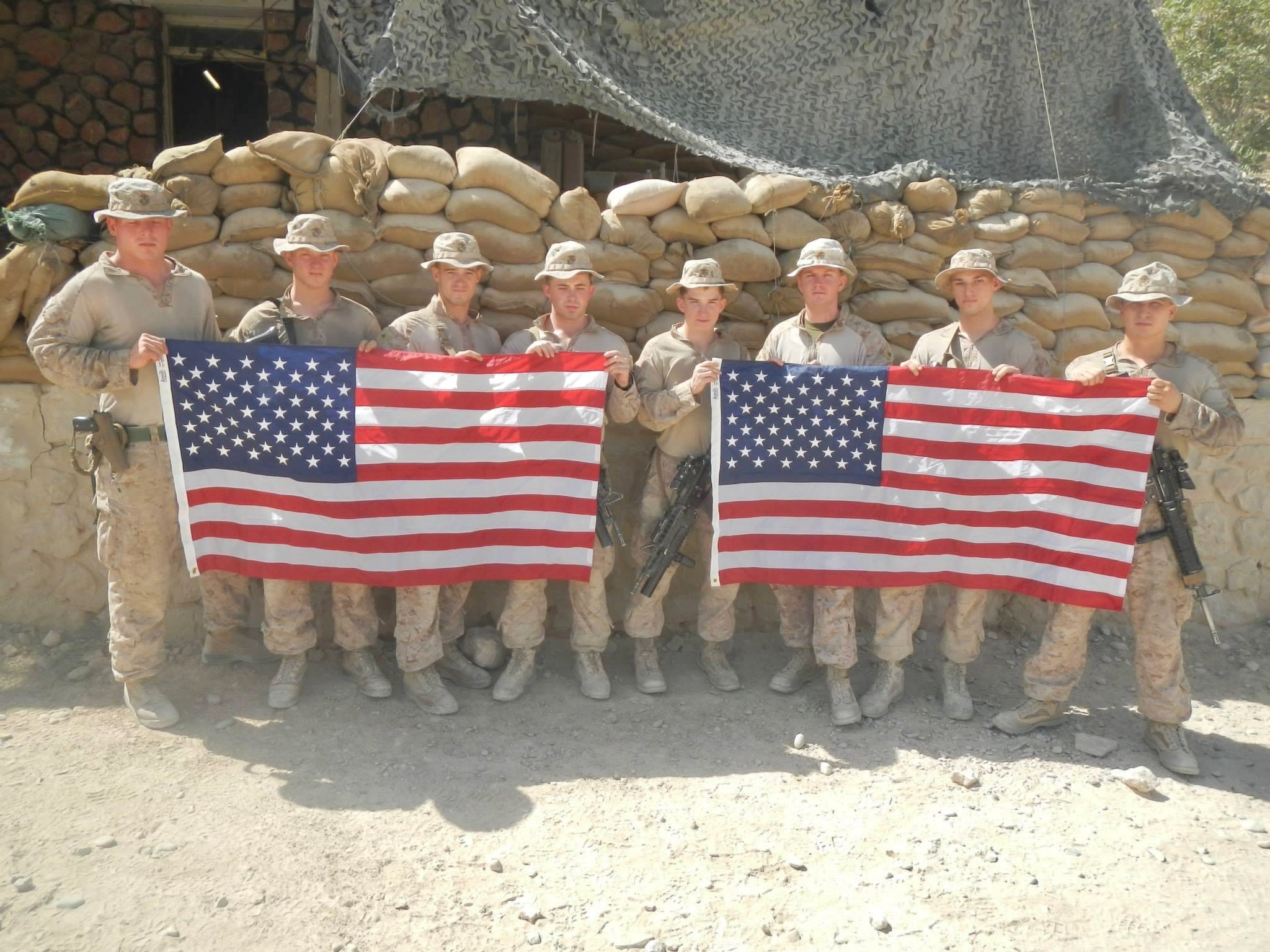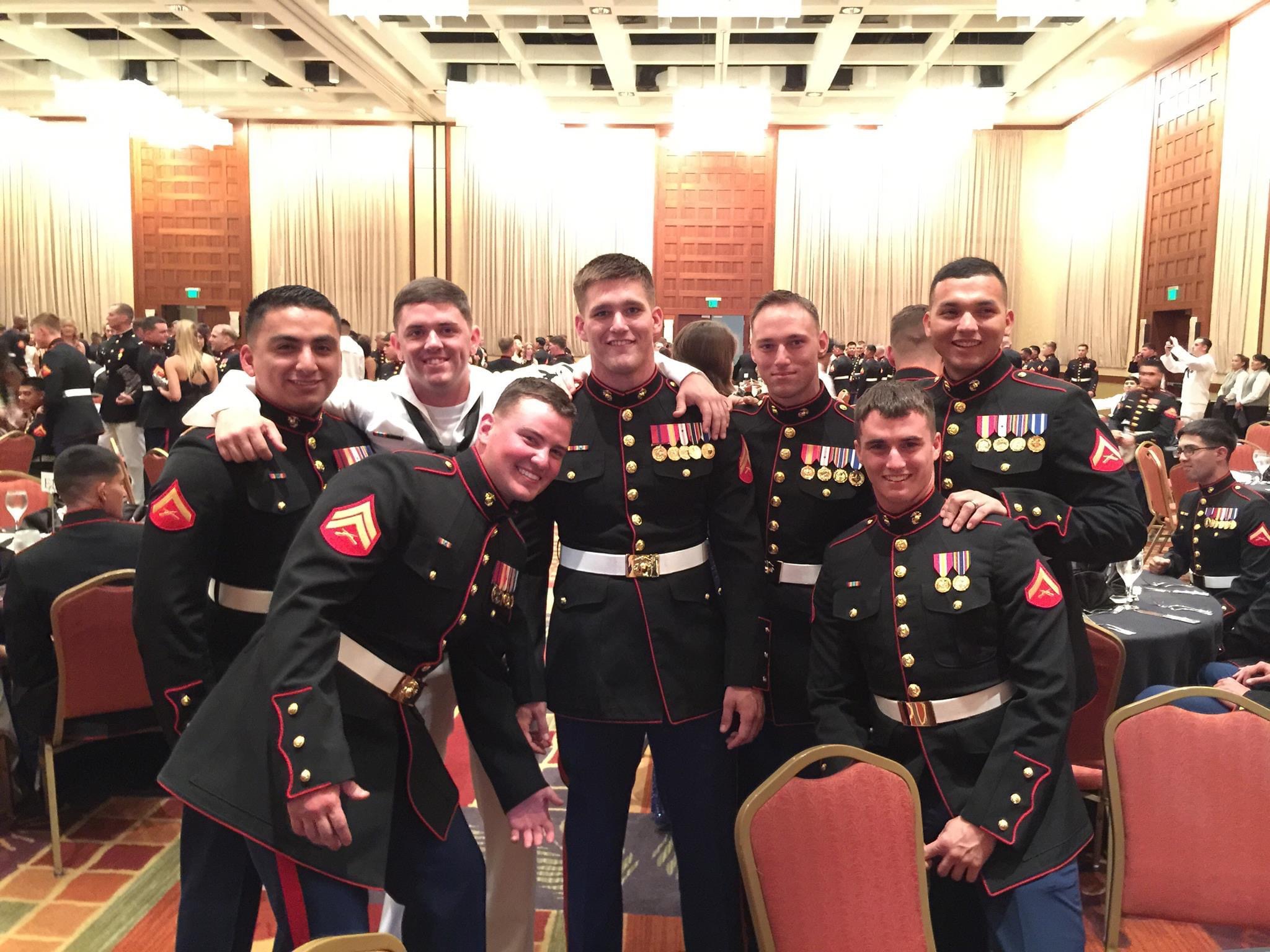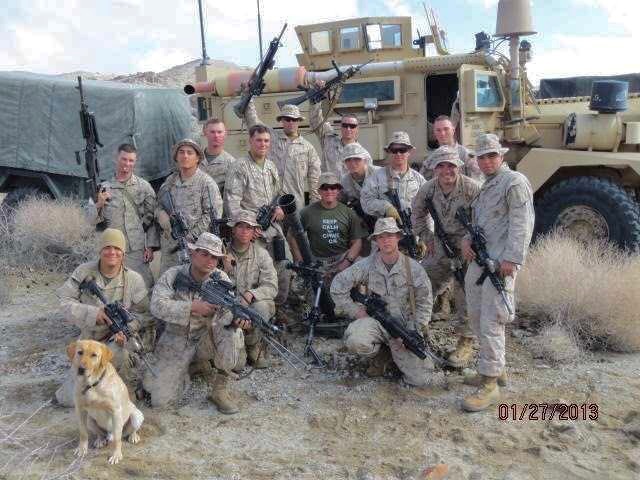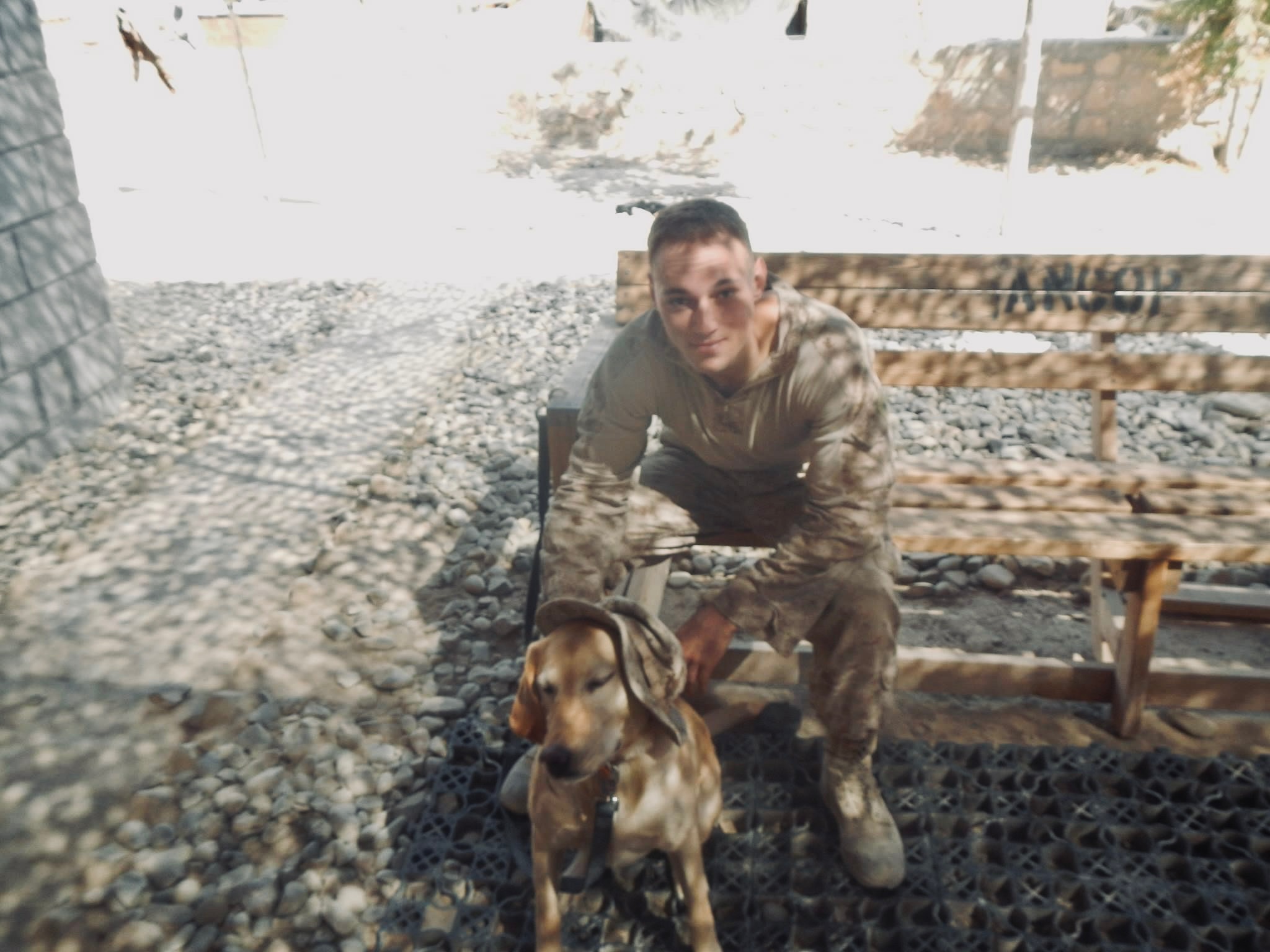I hope my kids take pride in my military experiences and achievements as I did with my grandparents who served. They are no longer with me, but I keep their memory alive by thinking about them; without their service I may have never joined. The Marine Corps truly made me the man I am today. My work ethic and demeanor, the places I got to see, the things I got to do, the people I got to meet—these are the things I’ll always look back on in admiration of, more than just earning an honorable discharge. I would like my kids to know that securing the safety of our country is an honorable task, that America was, is, and always will be worth fighting for.
One way I would put it is that it’s an experience I would not trade for a million dollars but also never do again for a million dollars. It is life changing; you’re glad you did it but man was it tough. There’s nobody that goes into the military, puts in their best effort, and comes out a worse person. Especially in the Marine Corps because it’s the most disciplined branch, people come out with a better work ethic and attitude. Everybody that I went in and out with—I check up on periodically—is doing great now. No matter how big or small, any American who’s willing to put in their best efforts, will get something out of serving and become a better person for it.
To get the most out of that, I believe all Americans, especially veterans, need to keep up that drive. It’s easy in the military because of so many outside factors influencing you, but as soon as you get out you’re a civilian again, you’re on your own. What’s important is to maintain the drive to keep getting better for your career, health, or relationships. Keep pushing yourself to do the best you can even outside of military service.
What drove me in the military was my competitiveness. I’ve always been competitively driven, but compared to when I was younger, that drive is much more focused now. I put a lot more thought and effort into everything I did because I realized I didn’t want to make a career out of being a Marine. I wanted to do my deployments, do my four years and get out. Because of that, I wanted to make the most of those four years. So, I thought: why not push as hard as I can, leaving very little to regret when I look back, so I could believe I truly did everything to accomplish my goals. As well as helping train the future marines that would take my place. I kept them accountable and focused just as my seniors did to me.
What I do have looking back is how I changed from all those experiences. My deployments to the Middle East were my first time outside the U.S., and they gave me a broader understanding of the world. It’s easy to think the world’s very small before you see all these different cultures and customs.
Seeing that, I give effort to appreciate all the little things even when the days are monotonous. The testing and training from my senior marines helped me always put forth my best effort no matter the situation, so that even in times of suffering I’m able to laugh it off and move forward. Besides, some unpleasant things, some miserable tasks, you can’t avoid them, so why not get them done with a positive attitude and laugh it off? Even when it seems impossible to be optimistic, I try to be.
Effort and accomplishments. I think the biggest accomplishment I obtained while in the service was earning the rank of Non-Commissioned Officer. I was promoted to corporal in only two and a half years, which is really good especially in the infantry.
Many do not move up so fast. Once I got in the Marine Corps. I knew I wanted to lead, so getting promoted to a leadership rank and being placed into a leadership billet so early was a personal accomplishment for me. Another accomplishment includes earning a couple meritorious masses, which is essentially an honorable mention. This was during my infantry leaders’ course and a division school for mortarmen while I was still pretty fresh, competing against NCOs as a lance corporal right after my first deployment. It gave me a great deal of confidence outperforming these guys who had been in much longer than I had, at this point. Another personal victory was earning a perfect 300 on the Physical Fitness Test.
In high school I definitely wasn’t the biggest, strongest, or fastest. Therefore, getting a perfect score on an annual marine fitness test was something I never thought I’d ever accomplish, especially considering how strict marine fitness standards are.
One more thing I have to say is I got lucky, many go into the infantry and do not get to deploy into the areas I visited. I was able to use my training where some never got the opportunity. While war is never good, these experiences can be lessons and those moments are the ones I will remember the rest of my life. Along with the marines who were with me along the way.






